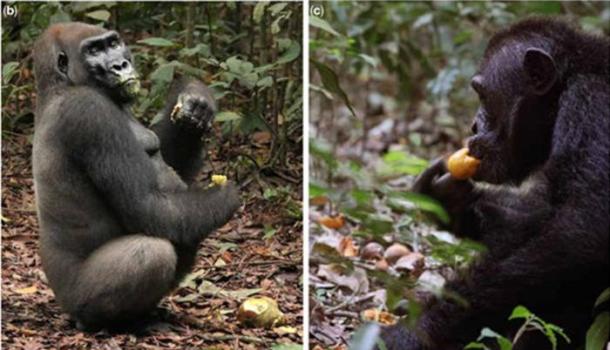🔴 Website 👉 https://u-s-news.com/
Telegram 👉 https://t.me/usnewscom_channel
Scientists have introduced a new term for an ancient behavior that may hold the key to understanding humanity’s complex relationship with alcohol. Researchers from Dartmouth and the University of St Andrews have coined “scrumping” to describe African apes’ preference for eating fallen, fermented fruit from the forest floor, a behavior that could explain how our ancestors first developed the ability to metabolize alcohol millions of years before humans learned to brew it.
The new study, published in the journal BioScience, suggests that this seemingly simple foraging behavior may have been a crucial evolutionary stepping stone that led to the sophisticated alcohol metabolism that allows humans to enjoy everything from wine with dinner to weekend celebrations.
- It’s Monkey Business! Human Desire For Alcohol Consumption Is Hardwired
- How Did We Discover Fermentation? (Video)
The Mystery of Missing Terminology
For decades, primatologists have observed African apes regularly consuming fruit that had fallen to the forest floor, but the significance of this behavior remained hidden in plain sight. The problem wasn’t a lack of observation, it was a lack of proper terminology to distinguish this specific feeding pattern from general fruit consumption.
